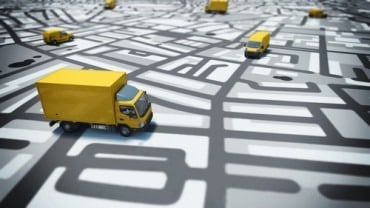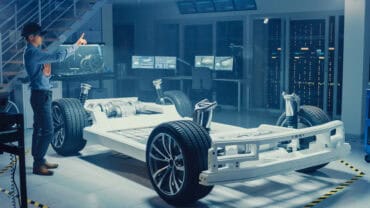
From maintenance experts to solution sellers, the industrial IoT offers numerous career opportunities.
If you’re looking for an IoT career, the Industrial Internet of Things (IIoT) doesn’t sound quite as glamorous as the broader IoT, which promises smart homes, smart cars, smart cities, wearable sensors, and everything else that can be outsmarted in daily life.
But for IoT careers, industry is actually where most of the action will be taking place, and when you drill down and look what’s happening, a lot of this work can be far more rewarding and impactful than building smart toasters. This encompasses a range of activities, from real-time tracking tools and parts at industrial sites to analyzing data coming in from machinery, engines and power plants. The sky’s the limit.
Estimates of IIoT’s eventual impact are all over the map, but all are huge. GE, for starters, projects that IIoT has the potential to deliver up to $11.1 trillion on an annual basis by 2025. Accenture puts the total value of IIoT at $14.2 trillion by 2030.
All this incredible value flowing through organizations tied to the IIoT, a tremendous number of new job and career opportunities will be emerging over the coming years. Here are some of the new and refashioned jobs that will go with the growth of the IIoT:
Product-service hybrid development: “Tomorrow’s industrial equipment will be hybrids of products and services: intelligent products that produce data for digital services — and often consume those services too,” state Accenture’s Allan Alter and Paul Daugherty in a recent report. For example, “Caterpillar analyzes data from its machines and engines and transmits the insights to dealers, enabling them to detect when maintenance is needed and help customers manage their fleets more efficiently.”
Maintenance experts: This is a role that IIoT organizations will evolve from that of “troubleshooter and exception handler” to “overseer of predictive maintenance, planning and steering based in data-driven analysis,” reports Paul-Louis Caylar and his McKinsey colleagues in a recent McKinsey analysis of IIoT impacts on production operations.
Solution sellers and evangelists: To compete in an IIoT world, companies will need sales managers with “engineering knowledge to sell product-service hybrids,” as well as marketers who understand the implications of digital products and services, Alter and Daugherty state. “Sales engineers must understand the buyers’ needs, requirements, issues and technology environment to put together and install the right solution.”
Digital service operations: IIoT-savvy companies will also need “data scientists and analysts who can interpret the insights from analytics programs; intelligent equipment operators who operate robots and equipment on site or from remote locations; maintenance and repair staff; and trainers,” Alter and Daugherty state.
Quality specialists: The McKinsey report observes that this role changing as well because of IIoT, from inspecting “parts and controls quality standards after the fact” to “smart engineering of process to online control for quality issues.”
Production planners: This role, which typically involves “top-down planning and steering of linear processes,” will elevate within IIoT settings to “supply-chain planner who develops flexible self-steering value stream; becomes a planner on a fully integrated supply chain from order to delivery,” says Caylar and his co-authors.
Logistics planners: As the IIoT gains steam, logistics planners will grow from merely managing a segmented inbound, line delivery, outbound approach to becoming planners “on a fully integrated supply chain from order to delivery,” the Caylar team observes.
The above roles are just the tip of the iceberg when it comes to IoT careers for industries. This doesn’t just apply to manufacturers, of course – IIoT skills will also be required in healthcare settings, government agencies, and service companies. It’s guaranteed that as IIoT approaches the trillion-dollar realm, companies will be competing fiercely for the skills that will enable them to digitize and enable real-time analytics at all deliberate speed.




























